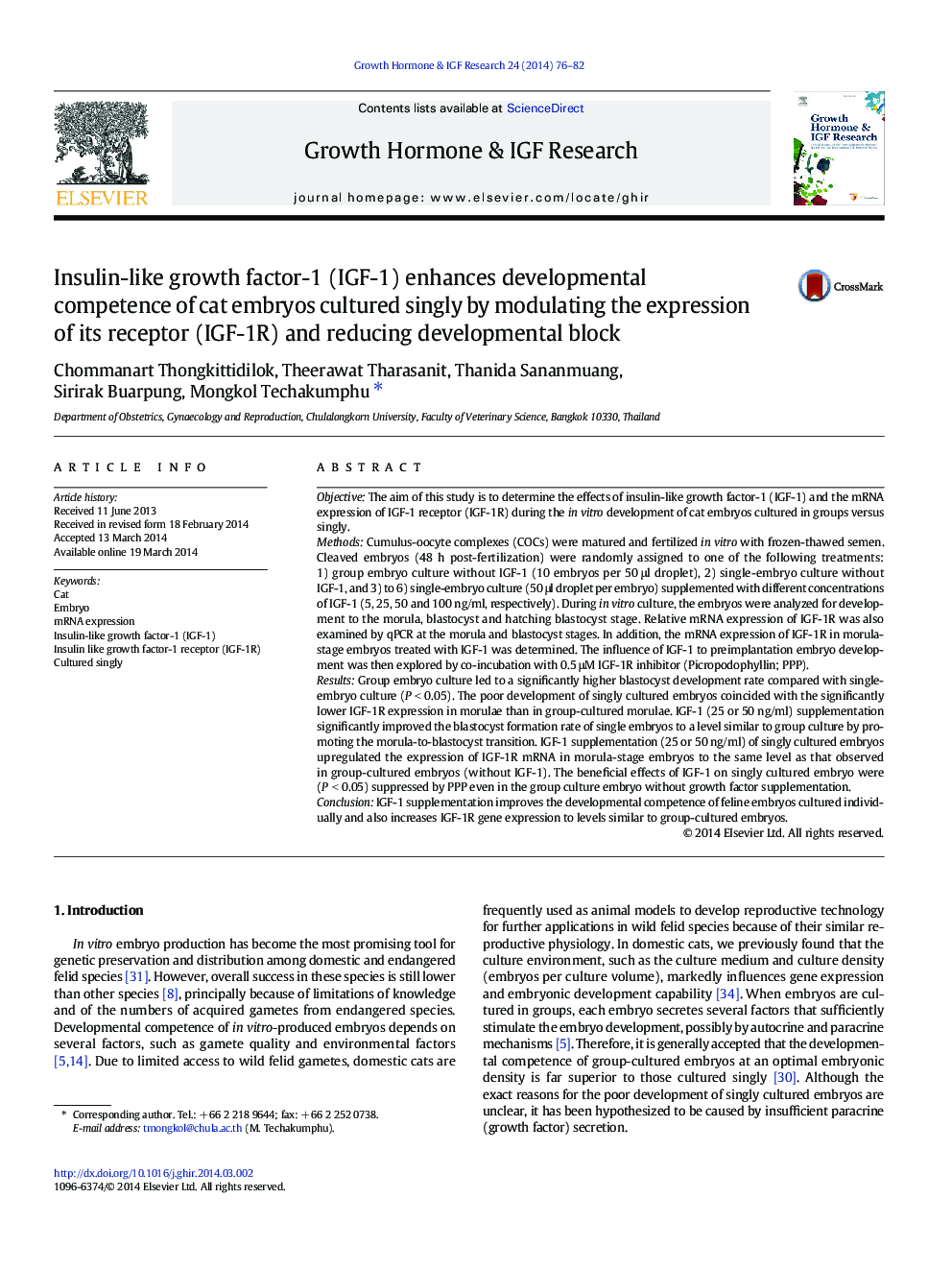| Article ID | Journal | Published Year | Pages | File Type |
|---|---|---|---|---|
| 2802585 | Growth Hormone & IGF Research | 2014 | 7 Pages |
ObjectiveThe aim of this study is to determine the effects of insulin-like growth factor-1 (IGF-1) and the mRNA expression of IGF-1 receptor (IGF-1R) during the in vitro development of cat embryos cultured in groups versus singly.MethodsCumulus-oocyte complexes (COCs) were matured and fertilized in vitro with frozen-thawed semen. Cleaved embryos (48 h post-fertilization) were randomly assigned to one of the following treatments: 1) group embryo culture without IGF-1 (10 embryos per 50 μl droplet), 2) single-embryo culture without IGF-1, and 3) to 6) single-embryo culture (50 μl droplet per embryo) supplemented with different concentrations of IGF-1 (5, 25, 50 and 100 ng/ml, respectively). During in vitro culture, the embryos were analyzed for development to the morula, blastocyst and hatching blastocyst stage. Relative mRNA expression of IGF-1R was also examined by qPCR at the morula and blastocyst stages. In addition, the mRNA expression of IGF-1R in morula-stage embryos treated with IGF-1 was determined. The influence of IGF-1 to preimplantation embryo development was then explored by co-incubation with 0.5 μM IGF-1R inhibitor (Picropodophyllin; PPP).ResultsGroup embryo culture led to a significantly higher blastocyst development rate compared with single-embryo culture (P < 0.05). The poor development of singly cultured embryos coincided with the significantly lower IGF-1R expression in morulae than in group-cultured morulae. IGF-1 (25 or 50 ng/ml) supplementation significantly improved the blastocyst formation rate of single embryos to a level similar to group culture by promoting the morula-to-blastocyst transition. IGF-1 supplementation (25 or 50 ng/ml) of singly cultured embryos upregulated the expression of IGF-1R mRNA in morula-stage embryos to the same level as that observed in group-cultured embryos (without IGF-1). The beneficial effects of IGF-1 on singly cultured embryo were (P < 0.05) suppressed by PPP even in the group culture embryo without growth factor supplementation.ConclusionIGF-1 supplementation improves the developmental competence of feline embryos cultured individually and also increases IGF-1R gene expression to levels similar to group-cultured embryos.
